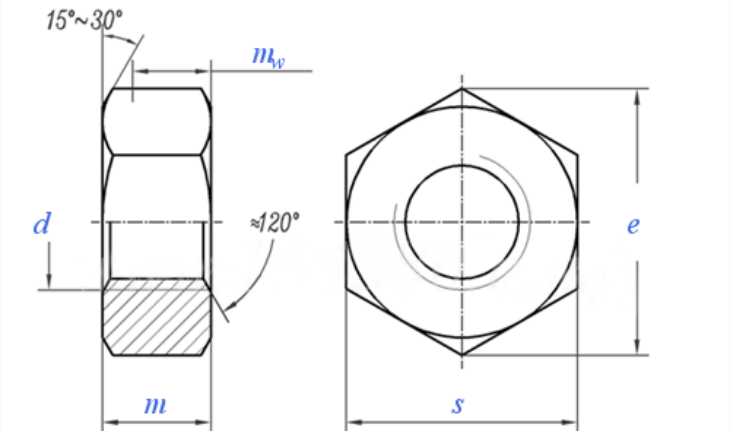Exploring OEM V Bolts for Enhanced Performance in Automotive Applications
Nov . 19, 2024 12:28 Back to list
Exploring OEM V Bolts for Enhanced Performance in Automotive Applications
Understanding OEM vs. Aftermarket Bolts A Comprehensive Guide
In the world of automotive repair and maintenance, the terms OEM (Original Equipment Manufacturer) and aftermarket often come up, particularly when discussing replacement parts like bolts. While bolts may seem like a minor detail in your vehicle's overall functionality, their quality and application can significantly impact performance, safety, and durability. This article will explore the differences between OEM and aftermarket bolts, helping you make an informed choice for your vehicle.
What are OEM Bolts?
OEM bolts are parts that are made by the original manufacturer of your vehicle. These bolts are produced to the exact specifications, materials, and design standards that were used in the initial assembly of the vehicle. This means that when you replace a bolt with an OEM part, you are ensuring compatibility and maintaining the integrity of the vehicle as it was designed by the manufacturer.
One of the primary advantages of using OEM bolts is their reliability. Since they come directly from the vehicle manufacturer, they are extensively tested for quality and performance. This can provide peace of mind, particularly in critical areas such as the engine, suspension, or brakes, where failure could lead to severe consequences.
The Appeal of Aftermarket Bolts
On the other hand, aftermarket bolts are made by third-party manufacturers. These parts can vary significantly in terms of quality and design, as they are not bound by the same stringent standards that OEM parts are. Aftermarket manufacturers often aim to provide a more cost-effective solution, which can be attractive for many vehicle owners looking to save money.
Another potential benefit of aftermarket bolts is the range of options available. Some manufacturers produce performance-oriented bolts designed to offer enhanced strength, weight reduction, or resistance to corrosion. Enthusiasts looking to upgrade their vehicles might prefer these aftermarket options for better performance in specific applications.
However, it is important to approach aftermarket parts with caution. The lack of oversight and standardization can lead to variations in quality. Inferior bolts can lead to premature wear, failure, and even safety hazards, so it's crucial to do thorough research and choose reputable brands if opting for aftermarket parts.
oem v bolts

Factors to Consider When Choosing Bolts
When deciding between OEM and aftermarket bolts, several factors should be taken into consideration
1. Application If the bolts are for a critical component of your vehicle (like the engine or braking system), opting for OEM parts may be the safer choice. For less critical areas or cosmetic applications, aftermarket bolts might be sufficient.
2. Budget OEM bolts are generally more expensive than their aftermarket counterparts. If you're on a tight budget, consider whether the cost difference is justifiable based on the application and expected lifespan.
3. Vehicle Age and Rarity For older or rare vehicles, finding OEM bolts may be challenging. In such cases, high-quality aftermarket options can provide a viable solution.
4. Intent of Use If you're upgrading your vehicle for performance, high-performance aftermarket bolts designed for strength and durability may offer benefits that OEM bolts do not.
Final Thoughts
In conclusion, the choice between OEM and aftermarket bolts ultimately depends on your specific needs, the application, and your budget. While OEM bolts provide reliability and peace of mind, aftermarket options can offer cost savings and performance improvements if carefully selected. Always consider the manufacturer's recommendations and do your research to ensure that whatever option you choose will uphold the performance and safety standards required for your vehicle.
Remember, even the smallest components, like bolts, play a crucial role in the overall performance and safety of your vehicle. Make educated decisions and consult with automotive professionals if you're unsure which route to take. Quality matters, and choosing the right bolts is an investment in your vehicle's longevity and reliability.
Latest news
-
High-Quality Panel Stud Bolt Reliable Panel Stud Bolt Factory & Suppliers
NewsJul.08,2025
-
High-Precision Fine Thread Locknuts Manufacturer & Supplier Custom Solutions
NewsJul.08,2025
-
PH Imperial Stud Bolt – High Strength Fasteners from Leading Supplier & Factory
NewsJul.07,2025
-
High-Quality Allen Wrench Bolts Leading Factory, Company & Suppliers
NewsJul.07,2025
-
Wholesale Ball Stud Bolt - High Quality Supplier & Factory Price Reliable Wholesale Ball Stud Bolt Company
NewsJul.06,2025
-
High-Strength Alloy Bolts Manufacturer & Supplier Quality Alloy Fasteners Factory
NewsJul.06,2025
